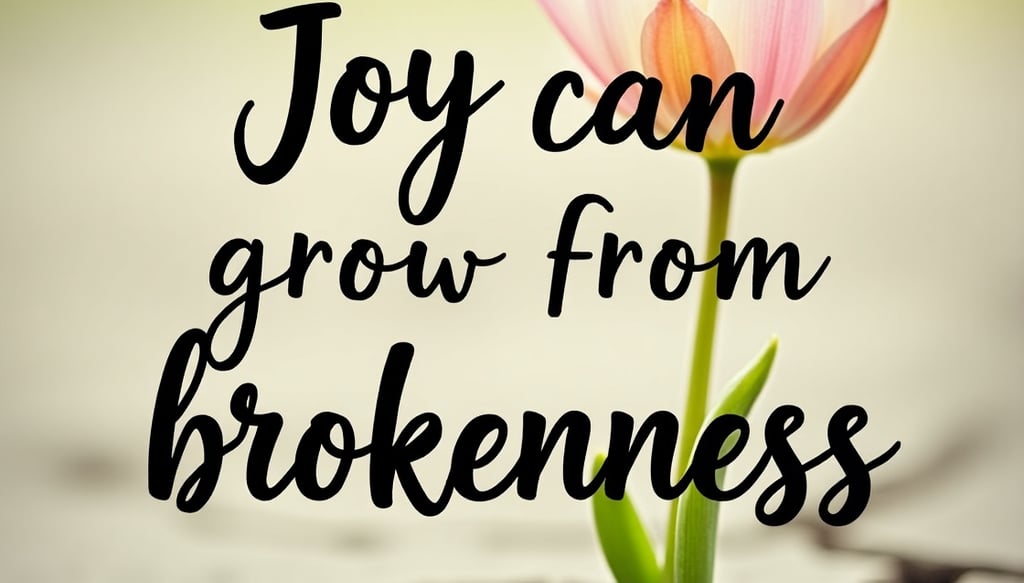Overcoming Grief and Finding New Joy: A Journey Toward Healing
Javed Niamat
9/8/20253 min read


Overcoming Grief and Finding New Joy: A Journey Toward Healing
Grief is one of the most profound emotions we experience as human beings. It is a natural response to loss—whether that loss is the death of a loved one, the end of a relationship, the loss of health, or even a major life change. While grief can feel overwhelming, heavy, and unending, there is hope. Over time, healing is possible, and new joy can be found, even in the midst of sorrow. This article explores the path of overcoming grief, understanding its process, and discovering fresh sources of joy.
Understanding Grief: A Natural Part of Life
Grief is not a weakness—it is a sign of love. The deeper the love or connection, the deeper the grief. Psychologists often describe grief as a process that unfolds in stages: denial, anger, bargaining, depression, and acceptance. However, it is important to note that these stages are not linear. People often move back and forth between them in their own unique way. Understanding this can help us be patient with ourselves during the healing journey.
Key insight: Healing from grief is not about "getting over it," but about learning to live with the loss in a healthier way.
The Healing Process: Steps Toward Recovery
Healing from grief requires time, compassion, and intentional effort. While each journey is unique, certain practices can help guide us toward restoration.
Allow Yourself to Feel
Suppressing grief can delay healing. It’s essential to give yourself permission to cry, reflect, and acknowledge your emotions. Grief deserves to be honored.Seek Support
Talking to family, friends, or a counselor can ease the burden. Support groups, both in-person and online, allow you to connect with others who understand your pain.Take Care of Your Body
Grief is not only emotional but also physical. Lack of sleep, poor appetite, and fatigue are common. Nourishing your body with rest, balanced meals, and gentle exercise is vital.Find Healthy Outlets
Writing in a journal, creating art, or engaging in spiritual practices such as prayer and meditation can provide comfort and clarity.Give Yourself Time
Healing cannot be rushed. Avoid comparing your journey with others. Every person heals at their own pace.
Rediscovering Joy: Small Steps Toward Light
One of the hardest parts of grief is believing that joy is possible again. But joy is not the absence of pain; it is the ability to find beauty and meaning even in brokenness. Here are some ways to rediscover joy after loss:
Embrace Small Moments of Happiness
Notice the small things that bring you comfort: the warmth of sunlight, laughter with a friend, or a favorite song. These moments are stepping stones back to joy.Create New Traditions
Loss often disrupts our routines and traditions. Creating new ones can help us move forward while still honoring the past.Honor the Memory of Your Loved One
Celebrate the person or chapter you lost by keeping their memory alive in meaningful ways—planting a tree, writing letters, or supporting a cause they cared about.Pursue New Passions
Loss sometimes opens doors to new interests. Whether it’s volunteering, traveling, or learning a skill, these experiences can spark fresh joy.Practice Gratitude
Gratitude doesn’t erase grief, but it shifts our focus. By acknowledging the blessings that remain, we slowly learn to embrace life again.
Faith, Hope, and Inner Strength
For many, faith plays a crucial role in overcoming grief. Believing that life has meaning, even in suffering, can provide strength during dark moments. Prayer, scripture, and meditation can bring peace and assurance. Hope is the anchor that reminds us joy is possible, even when we cannot see it clearly yet.
Common Misconceptions About Grief
“Time heals all wounds.” While time helps, healing requires active engagement with grief.
“You should be over it by now.” There is no timeline for grief; healing is deeply personal.
“Moving forward means forgetting.” You never forget someone you love. Healing means carrying their memory into your future with renewed strength.
Practical Self-Care Strategies
Maintain a routine to create stability.
Engage in creative outlets like painting, writing, or music.
Limit stress by practicing mindfulness or deep breathing.
Spend time outdoors to reconnect with nature’s healing rhythm.
Seek professional counseling if grief feels overwhelming.
Conclusion: From Grief to New Joy
Grief is a journey, not a destination. While it may feel like the pain will never end, healing unfolds gently with time, patience, and intentional care. By embracing grief, leaning on support systems, and choosing to notice moments of light, we can discover new joy and meaning in life. Grief may change us, but it also deepens our compassion, resilience, and appreciation for the beauty of living.
If you are walking through grief today, know this: you are not alone. Your pain matters, your healing matters, and joy will come again—even if in a new and different form.